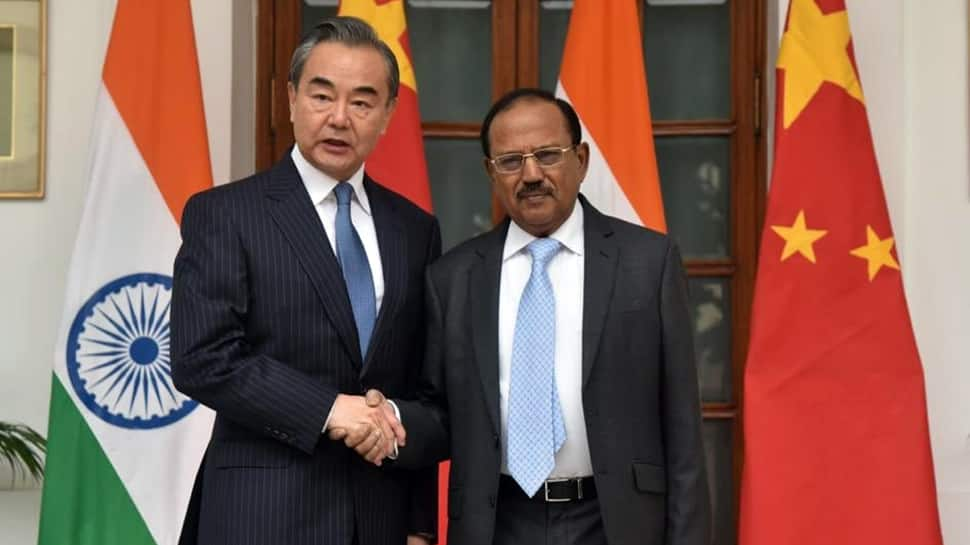It has been four years since the Galwan Valley standoff, during which India-China relations deteriorated significantly. China had maintained a strong military presence in the Galwan Valley since then, but now tensions are gradually easing. After four years, China has ordered its troops to withdraw from the region. The question that arises is, what has changed after these four years that led China to withdraw its forces? Let us delve into the details.
On Friday, September 13, the Chinese Foreign Ministry announced that troops had been withdrawn from four locations, including the Galwan Valley in eastern Ladakh. The ministry mentioned that during a meeting in Russia, both India and China agreed to work together to create an enabling environment for improving bilateral relations.
According to a press release issued by the Chinese Ministry of Foreign Affairs, National Security Advisor Ajit Doval and Chinese Foreign Minister Wang Yi held talks on the sidelines of a high-level BRICS meeting in St. Petersburg, Russia on Thursday. During this meeting, both sides discussed recent progress in their deliberations on border issues.
A Chinese Foreign Ministry spokesperson said: “Over the past few years, forward-deployed forces of both countries have completed the four-point disengagement process along the western sector of the China-India border, including the Galwan Valley. The situation along the China-India border is generally stable and under control.” This statement followed remarks by Indian External Affairs Minister S. Jaishankar in Geneva where he mentioned that around 75% of the issues related to troop disengagement with China have been resolved, although increasing militarisation along the border remains a major concern.
Ajit Doval and Wang Yi, special representatives for the India-China border negotiations, discussed the future of India-China relations. In a detailed press release, the Chinese Ministry of Foreign Affairs said that both sides believe that the stability of India-China relations is in the fundamental and long-term interest of their peoples and contributes to regional peace and development.
According to a report by China’s official news agency Xinhua, Wang Yi, a member of the Political Bureau of the Communist Party of China Central Committee, stressed that in the face of a turbulent world, as two ancient Eastern civilizations and emerging developing nations, China and India should stand firm in their independence, choose unity and cooperation, and avoid harming each other. Wang expressed the hope that both sides would take a pragmatic approach to resolve differences appropriately, find a suitable way to work together, and bring India-China relations back to a healthy, stable and sustainable development track.
Disclaimer:
The information contained in this post is for general information purposes only. We make no representations or warranties of any kind, express or implied, about the completeness, accuracy, reliability, suitability or availability with respect to the website or the information, products, services, or related graphics contained on the post for any purpose.
We respect the intellectual property rights of content creators. If you are the owner of any material featured on our website and have concerns about its use, please contact us. We are committed to addressing any copyright issues promptly and will remove any material within 2 days of receiving a request from the rightful owner.

